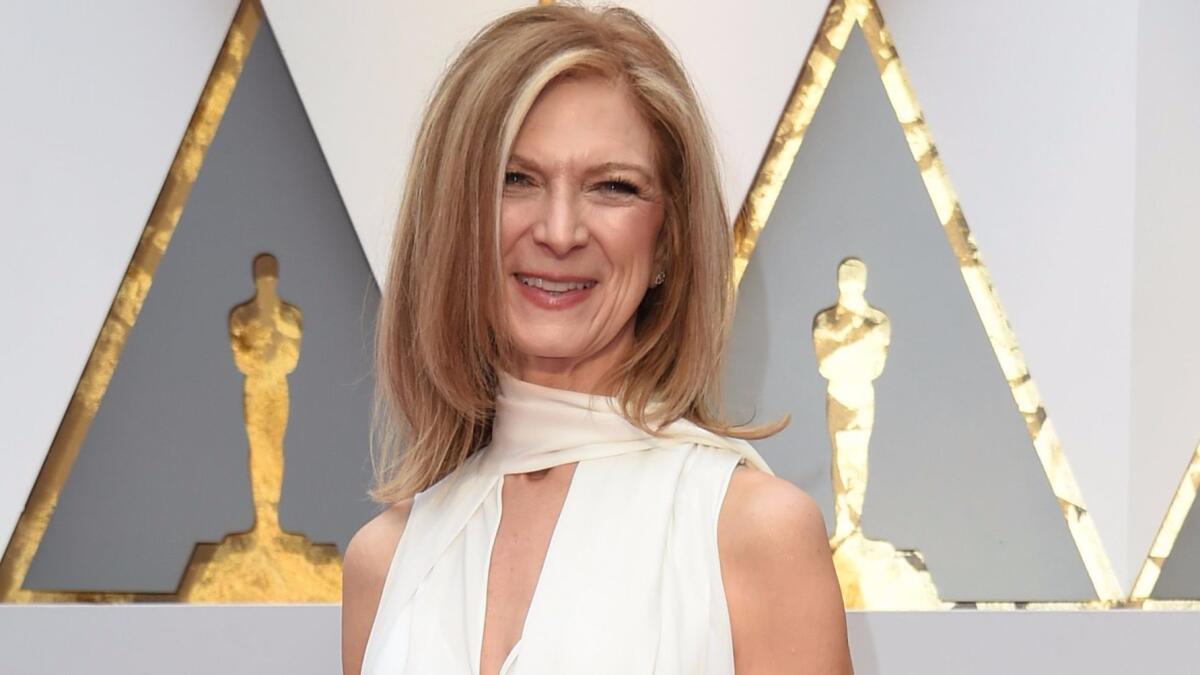Academy may reverse controversial Oscars change after meeting with top cinematographers

- Share via
UPDATE: The motion picture academy has reversed its planned changes and will present all Oscars in the traditional fashion this year.
The Oscars conflict that has gripped Hollywood’s attention since Monday, drawing battle lines between the motion picture academy’s leadership and many of the group’s most illustrious members, may soon come to a head.
On Thursday evening, the academy’s chief executive, Dawn Hudson, and president, John Bailey, met with a handful of prominent members of the cinematography community — American Society of Cinematographers President Kees van Oostrum and cinematographers Hoyte van Hoytema (“Dunkirk”), Emmanuel Lubezki (“The Revenant”) and Rachel Morrison (“Black Panther”) — to discuss the academy’s controversial plan to move the presentation of four awards to commercial breaks in a bid to shave time off the often bloated broadcast.
In a letter addressed to members of the American Society of Cinematographers on Friday, Van Oostrum — who has become the de facto leader of a grassroots effort to get the four impacted categories (cinematography, editing, live-action short, and hairstyling and makeup) reinstated into the live broadcast — said the meeting had been “very productive and positive.”
“Today they will let us know if the Academy will (hopefully) reverse its decision in regards to the Awards program,” Van Oostrum wrote in the letter, a copy of which was obtained by The Times. “We feel that that would not only be great for the upcoming event but also a major step in the direction of the ASC working closely with the Academy to deal with the larger issues ahead of us.”
Representatives for the academy did not immediately respond to a request for comment.
As recently as Wednesday, academy insiders were saying that, with the Feb. 24 show rapidly approaching, a reversal of the decision was unlikely. But since then, the blowback against the idea has only grown more intense.
An open letter protesting the move on the ASC’s website has gathered hundreds of signatures, including numerous Oscar winners from across the industry along with current nominees such as Emma Stone, Alfonso Cuarón, Spike Lee and Glenn Close.
“As we speak the list is still growing and this morning also Meryl Streep signed,” Van Oostrum wrote.
Though many have noted the irony that Bailey is himself a cinematographer and thus may have been expected to shield the branch from any perceived slight, Van Oostrum singled out the academy president for praise in his letter.
“Let me first state that everyone involved with this movement has nothing but the greatest respect for John Bailey,” he wrote. “Not only is he one of us, but he also has an impeccable reputation of being an ethical and conscientious leader. Our ‘open letter’ effort is directed at the Academy executives and is rooted in a concern that they are contemplating shortsighted changes and risking a potential PR fallout that could endanger the future of the entire organization.”
Should the academy decide to go back on its plan, it wouldn’t be the first major whiplash-inducing reversal involving this year’s Oscars. In September, the academy’s leadership scrapped a much-criticized plan to create a new “best popular film” category for this year’s Oscars just weeks after it had been announced. In December, Kevin Hart stepped down as the announced host of the show amid an uproar over past homophobic tweets and jokes, leaving the Oscars without a formal host for the first time in 30 years.
Should the academy now reverse itself on the plan to shift the four awards to commercial breaks, which was announced in August, the group would likely run the risk of going over the three-hour limit it has imposed on itself for this year’s show.
“We are committed to a three-hour show,” Bailey told The Times last September. “It’s necessary. I feel we have a responsibility to the people who watch that show in the Eastern time zone, which is a huge market, to have that show ended by 11. Nobody that I know of has protested about that.”
Twitter: @joshrottenberg
More to Read
Only good movies
Get the Indie Focus newsletter, Mark Olsen's weekly guide to the world of cinema.
You may occasionally receive promotional content from the Los Angeles Times.










